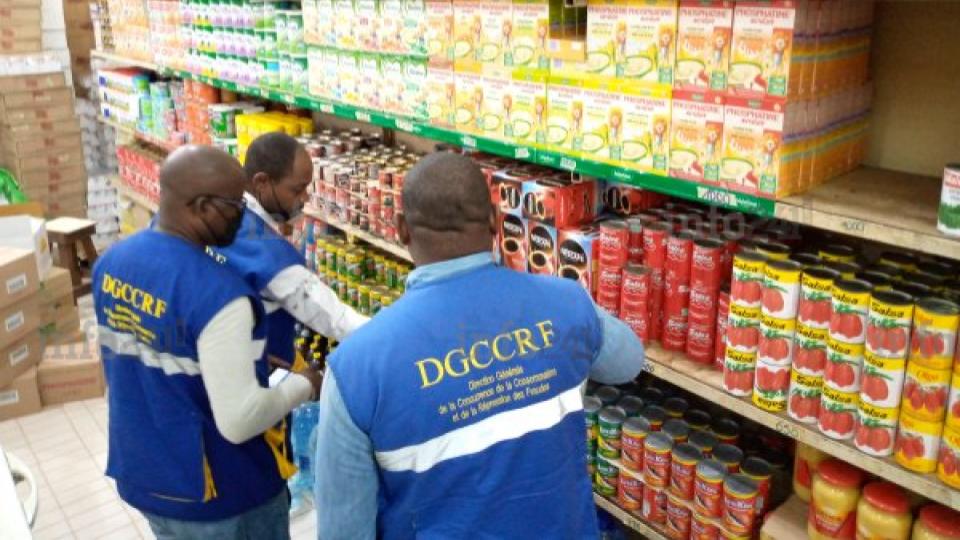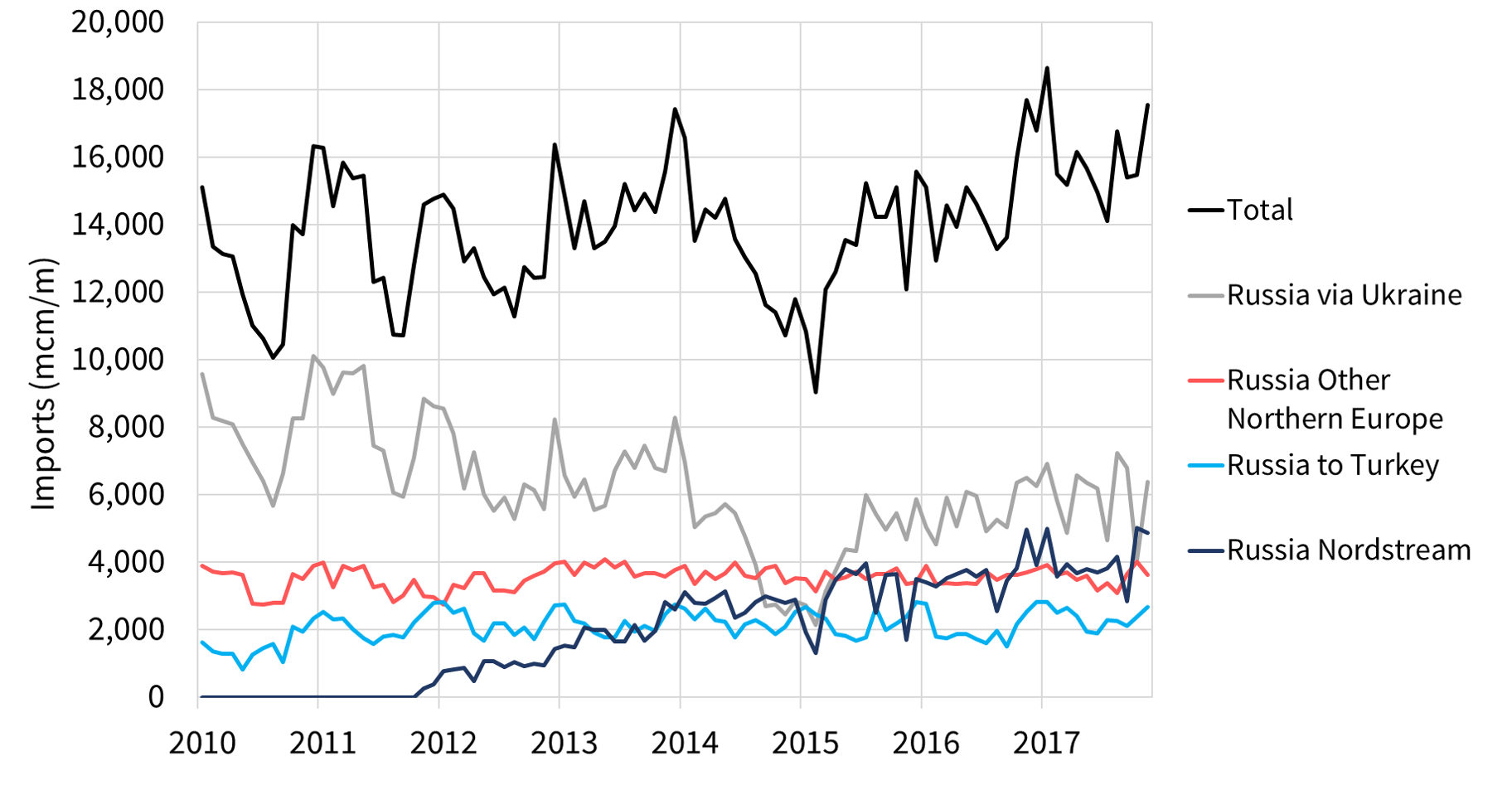ECOWAS Economic Affairs: Charting A Course For The Future At Niger Retreat

Table of Contents
Assessing Current Economic Challenges Faced by ECOWAS Member States
Several significant hurdles impede the economic progress of ECOWAS member states, hindering the realization of a truly integrated and prosperous region. These challenges necessitate concerted efforts towards collaborative solutions.
Infrastructure Deficiencies
Inadequate infrastructure represents a major bottleneck to economic growth within ECOWAS. Poor transportation networks, unreliable energy supply, and limited digital infrastructure significantly increase the cost of doing business and limit access to markets.
- Transportation: Many roads and railways are in disrepair, increasing transportation costs for goods and hindering trade. This is particularly acute in landlocked countries.
- Energy: Unreliable electricity supply impacts productivity across all sectors, from manufacturing to agriculture. This energy insecurity discourages investment and limits industrial development.
- Digital Infrastructure: Limited access to broadband internet and mobile connectivity restricts participation in the digital economy and limits access to information and financial services.
These infrastructure deficits directly impact trade and investment, hindering regional integration and economic development. Improved ECOWAS infrastructure is paramount for unlocking the region's economic potential. Investing in modern transportation networks, reliable energy sources (including renewable energy), and robust digital infrastructure is crucial for fostering regional integration and driving economic development.
Trade Barriers and Non-Tariff Barriers
Despite the existence of the ECOWAS Trade Liberalization Scheme (ETLS), significant trade barriers and non-tariff barriers continue to stifle intra-regional trade. These barriers increase costs, reduce competitiveness, and limit the benefits of regional integration.
- Tariff Barriers: While tariffs have been reduced under ETLS, some still exist, particularly on sensitive products.
- Non-Tariff Barriers: These include complex customs procedures, bureaucratic hurdles, sanitary and phytosanitary regulations, and technical barriers to trade, often creating significant delays and costs for businesses.
The effectiveness of the ETLS needs continuous assessment and improvement. Strengthening customs cooperation, streamlining border procedures, and harmonizing regulations are vital for reducing ECOWAS trade friction. Overcoming these tariff barriers and non-tariff barriers is essential for realizing the full potential of regional trade agreements and promoting trade facilitation.
Diversification of Economies and Reducing Dependence on Commodities
Many ECOWAS economies are heavily reliant on the export of primary commodities, making them vulnerable to price fluctuations in the global market. This dependence hinders sustainable and inclusive growth.
- Commodity Dependence: Fluctuations in global commodity prices directly impact export earnings and government revenue, creating economic instability.
- Value-Added Industries: Diversification towards value-added industries and services is crucial for creating higher-paying jobs and reducing vulnerability to external shocks.
Strategies for economic diversification include investing in education and skills development, promoting entrepreneurship, and attracting foreign direct investment in sectors beyond primary commodities. This requires fostering a supportive business environment and developing value-added industries to achieve sustainable development and reduce commodity dependence.
Strategies for Enhanced Regional Integration and Cooperation
To unlock the region's full economic potential, ECOWAS requires strategic interventions promoting regional integration and cooperation.
Strengthening Regional Value Chains
Developing interconnected regional value chains is essential for increasing productivity, enhancing competitiveness, and creating more jobs within the ECOWAS region. This requires collaboration across borders and sectors.
- Interconnected Production: Establishing linkages between businesses in different countries to create regional supply chains.
- Sectoral Focus: Identifying sectors with high potential for regional value chain development, such as agriculture, textiles, and manufacturing.
Learning from successful regional value chains in other regions, such as the East Asian model, can provide valuable insights. Building supply chain resilience through diversification and strategic partnerships is crucial for achieving regional competitiveness. Targeted industrial policy can guide this development and drive regional value chains.
Fostering Private Sector Development and Investment
The private sector is the engine of economic growth and job creation. Creating a favorable investment climate is crucial for attracting both domestic and foreign investment.
- Investment Climate: Improving infrastructure, reducing bureaucracy, ensuring regulatory predictability, and strengthening the rule of law.
- Access to Finance: Expanding access to credit and financial services for businesses, including SMEs.
Attracting foreign direct investment requires addressing investor concerns regarding risk and creating a supportive ecosystem for entrepreneurship. Improving the overall business environment is critical for private sector development.
Promoting Financial Inclusion and Access to Credit
Limited access to financial services hinders economic participation and growth. Promoting financial inclusion through innovative solutions is essential.
- Mobile Money: Leveraging mobile money and digital finance to expand access to financial services, particularly in rural areas.
- Microfinance: Expanding access to microfinance institutions and other financial services tailored to the needs of small businesses and individuals.
The role of regional financial institutions can be strengthened to support financial inclusion and provide access to credit. Expanding the use of mobile money and improving access to microfinance are essential steps towards broader financial inclusion.
The Niger Retreat: Outcomes and Recommendations for Future Action
The Niger retreat provided a platform for critical discussions and the formulation of concrete recommendations to address the challenges facing ECOWAS Economic Affairs. The outcomes included commitments from member states to:
- Increase investment in infrastructure development.
- Strengthen regional trade through the simplification of customs procedures and the reduction of non-tariff barriers.
- Promote economic diversification and value-added industries.
- Enhance private sector participation and investment.
- Improve access to finance and promote financial inclusion.
These commitments, if implemented effectively, will contribute significantly to the development of a more integrated and prosperous ECOWAS region. Specific policy changes and reforms resulting from the Niger retreat and the ECOWAS summit will shape the future direction of regional cooperation and policy recommendations.
Conclusion: Building a Stronger Economic Future for ECOWAS
The Niger retreat represents a crucial step towards building a stronger economic future for ECOWAS. By addressing the challenges outlined in this article and implementing the strategies and recommendations discussed, ECOWAS member states can unlock the region’s immense economic potential. Collaboration among member states, regional institutions, and the private sector is paramount to achieving sustainable economic development. Learn more about the latest initiatives to strengthen ECOWAS Economic Affairs and contribute to a more prosperous region.

Featured Posts
-
 Cote D Ivoire La Bcr Intensifie Ses Controles Dans Les Marches D Abidjan
May 20, 2025
Cote D Ivoire La Bcr Intensifie Ses Controles Dans Les Marches D Abidjan
May 20, 2025 -
 Addressing Taiwans Energy Needs The Importance Of Lng Imports
May 20, 2025
Addressing Taiwans Energy Needs The Importance Of Lng Imports
May 20, 2025 -
 Nyt Mini Daily Puzzle May 13 2025 Full Solutions And How To Play
May 20, 2025
Nyt Mini Daily Puzzle May 13 2025 Full Solutions And How To Play
May 20, 2025 -
 Mac Dusan Tadic Sueper Lig Tarihine Yazildi
May 20, 2025
Mac Dusan Tadic Sueper Lig Tarihine Yazildi
May 20, 2025 -
 Wwes Aj Styles Contract Status And Future Plans
May 20, 2025
Wwes Aj Styles Contract Status And Future Plans
May 20, 2025
